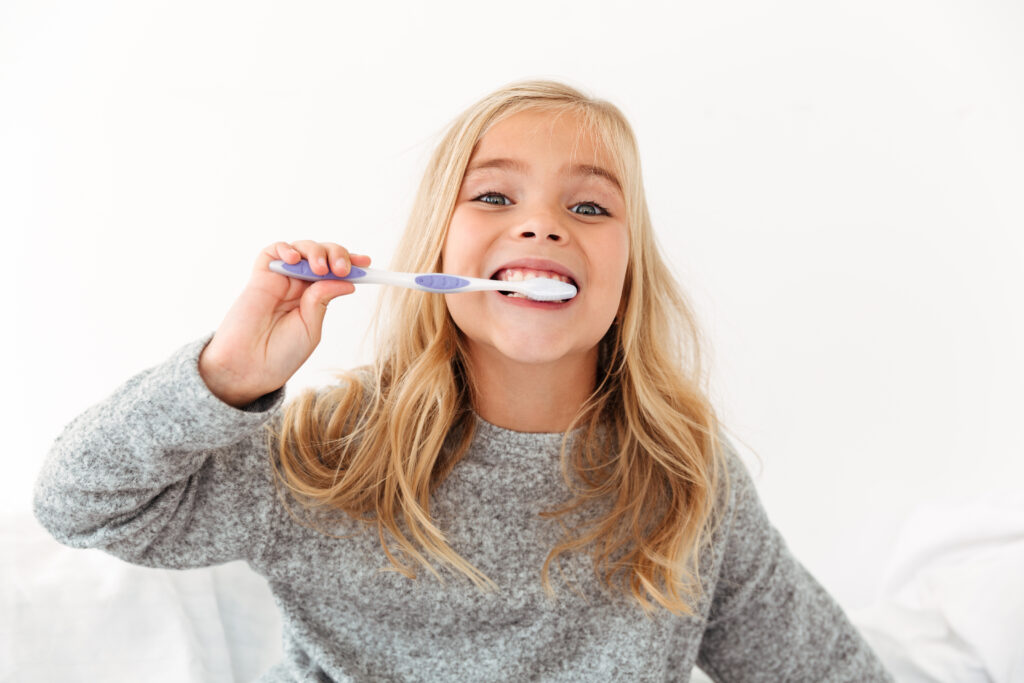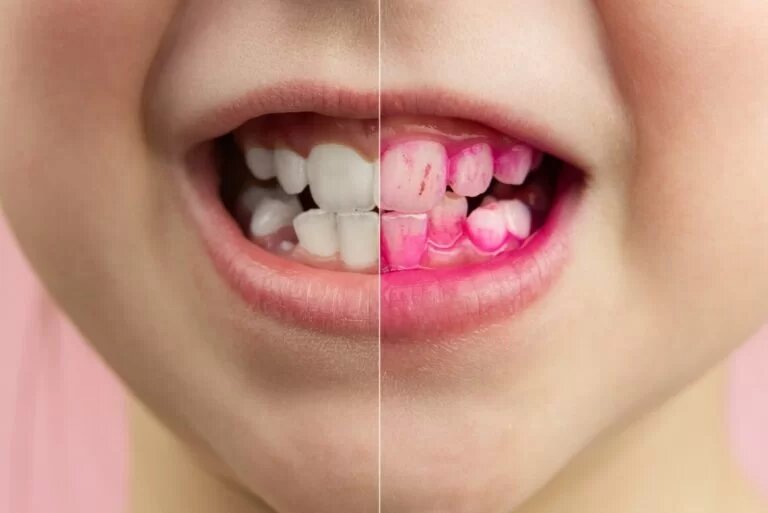Table of contents
On this occasion, I would like to share with you some tips for older children. Specifically from six to nine years old and from nine years old onwards.
1.- Between the ages of 6-9:
This is when things start to get serious. From the age of 6 years onwards, the replacement of milk teeth begins. The MINIMUM (not maximum) hygiene should be twice a day, in the morning before going to school, whether they have had breakfast or not (although ideally they should get up in time to have a good breakfast and their morning routine, for that I’m going to tell you, you have to be a bit Germanic when it comes to going to bed).
The second brushing should be before going to bed, this is when we should be more careful because during the night the bacteria become entrenched between the teeth and they have many hours in which the saliva dries, the tongue and lips move less (although there are some who do not stop talking even at night) and they can run wild.

In addition, the night is usually a less stressful time than the mornings and it is ideal for them to start rinsing with fluoride so that the permanent teeth become stronger.
And what can we do to motivate them? The tooth fairy is a great ally, the mouse pays more for clean and white teeth than for black ones or those that have had to be extracted by the dentist because of an infection (sorry but that’s how it is).
There are lots of little things you can do (from making your own to buying) to stimulate the illusion of the tooth fairy, little bags to collect teeth, door hangers to warn that the tooth has fallen out, tooth fairy doors to put on the wall (outside the bedroom of course, as some are scared of the mice,… this is a whole other day.
From the age of 7 when all the first molars have erupted and the replacement of teeth begins, it is advisable to have a check-up with the orthodontist, as with the dentist, the majority of children do not require any type of treatment. Only in some cases it is convenient to redirect the growth of the jaws and this is done in a short time and in an easier way at this age.
During these visits, the dentist (not only the parents) reinforces the importance of brushing teeth and gums, which also influences the child’s motivation. Just as when we go to the paediatrician he repeats over and over again how important it is to eat fruit and vegetables so that their tummies don’t hurt (it’s the same thing we say at home but external reinforcement always helps).
A little trick that can help is the use of plaque-revealing tablets. They are tablets that are sold in the pharmacy with a dye, the child brushes normally and once a week (on the day of the “cotton wool test”), after brushing, the mum or dad gives them the tablet to suck on (most of the time ½ tablet is enough). Once they dissolve the tablet in their saliva (it is not for biting or swallowing), they pass the saliva over all their teeth with their tongue (inside and out) and spit out what is left over (it is not worth choking on it).

Then they rinse with a little water and everything that is darker than the edge of the lollipops will be dirty, because no matter how badly they brush, the same chewing cleans this area. Well, if they have dirty areas we tell them to brush again, generally the back of the teeth and the molars slip out.
Little by little, if we are consistent, they will improve their technique and they will do it better and better, of course, if we do it once every 3 months it will not influence them much ? The best thing to do is to do it 1 day a week for at least 1 month.
Remember that children follow our example and if we tell them to eat more fruit and we don’t eat fruit the chances that they will suddenly light up are slim, they will copy what they see at home if we take care of our teeth it is more likely that they will also take care of themselves.
At this time of year, giving them sweets or milkshakes or fruit juices as a reward is like pouring petrol on a fire… it’s not a good plan, have you tried rewarding them with stickers?
2.- From the age of 9:
From this age onwards you don’t know whether to slit your wrists or leave them long, as they already know everything and start to feel grown up in capital letters, anyone can give them lessons. Ideally, we should have started to teach them the importance of oral hygiene from an early age and this is more or less over, but if not….
I would go back to using plaque disclosers because they are something “objective” and it’s not that my mother or father have a grudge against me… it’s what it is, like the cotton wool test, either it’s dirty or it’s clean.
Another external measure is mobile phone applications, there are several that you can download to monitor every time you clean your teeth and then show you a weekly or monthly statistic of brushing. They also usually have a timer or countdown so that they know how long “really” they have been brushing their teeth (MINIMUM but not maximum, 2 minutes each time they brush).
Some children are very motivated by the use of electric toothbrushes (for 1 week or so), if the child already brushes well and we buy them an electric toothbrush we will succeed but if the child doesn’t brush at all and we buy them an electric toothbrush it’s like throwing money out the window, they will end up cleaning Barbie or the dog’s teeth with it.
My opinion is that the electric toothbrush is a reward after the effort, not before.
I would also encourage you to praise them at the slightest, tiniest improvement and don’t expect them to go from 0 to 10 in 1 week. If you praise them (objectively) and look at the very small progress they make, they will probably want to keep improving and if you tell them everything they are missing, they will give up and throw in the towel (I say this from experience) setting small goals and not commenting too much on the bad, rather nothing, while putting the spotlight on the good makes them want to maintain the reputation of “having the whitest teeth”. Maybe they can teach a younger sibling and that’s… the best.
I hope this post has given you the information you were looking for. If you have any questions please contact me and I will get back to you. If you have any tricks that work for you to make your children brush their teeth well and alone, I would be grateful if you could tell me about them to improve the oral health of our little ones.


